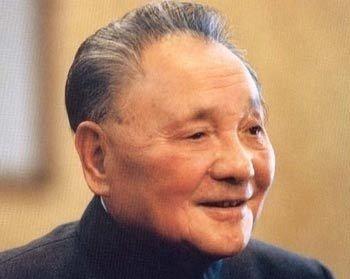Introduction: There are two of the most outstanding people in China's modern history, one of whom led the revolutionary fighters to establish a new China, and the people's lives have become stable, and he is Chairman Mao. Another person, when the motherland's economy was exhausted, resolutely took over the heavy responsibility, carried out reform and opening up, and the motherland completely embarked on the road to prosperity and strength, and he was Comrade Deng Xiaoping. After Comrade Deng Xiaoping took office, he carried out drastic reforms in many fields in the country, and the economy showed a thriving trend; this leader made many policy decisions, which many people did not understand at the time.

Everyone has heard the idiom of the land of Bashu, the vast Sichuan region refers to the land of Shu, and Chongqing and other places are in the division of bashi. Chongqing is relatively small in size, since ancient times this area has been inseparable from Sichuan, the local humanities and soil are very close to Sichuan, the people of the two places talk like a family. Since the qin dynasty, the first feudal dynasty in China, Chongqing has formed an indissoluble relationship with Sichuan. Taking into account the special geographical location of this area, in order to prevent the formation of a military group between the two places, the Qin King Yinzheng divided two counties. After the fall of the Qin Dynasty, these two areas underwent many reorganizations, and by the time of the Eastern Han Dynasty, they formed a larger area, Yizhou. In the following thousands of years, the feudal dynasties centralized power in different ways, and by the time of the Yuan Dynasty, the rulers established a provincial system, and Chongqing did not set up a separate province, and most of its area was within the Sichuan province.
During the Republic of China period, Chongqing's geographical advantages became more and more obvious, and many major warlords used this as a base to continuously develop military strength, and with the end of the Northern Expedition, it also became one of the strongholds of the Kuomintang. In 1937, the Japanese invaders attacked Nanjing, and the Kuomintang government was forced to flee to Chongqing, where it was based to fight the Japanese army. Chongqing also became the stronghold of the Kuomintang during the War of Resistance Against Japanese Aggression, witnessing the stories of countless benevolent people. After the founding of New China, all localities needed to identify provincial capitals, and the special significance shown by Chongqing during the War of Resistance against Japanese Aggression also enabled it to compete with Chengdu for the position of the capital of Sichuan Province.
Seeing this situation, Deng decided to classify Chongqing City as a municipality directly under the central government again, and many people did not understand this decision, and some people said that Chongqing had coexisted with Sichuan for so long that there was no need to divide it. However, Deng Gong's decision was recognized, and he believed that it would be established as a municipality directly under the central government, not a temporary benefit, and it was a decision that could benefit future generations. Facts have proved that after Chongqing became a municipality directly under the central government, its economy developed rapidly, and it once became a city with the forefront of the economic level. Someone interpreted this decision, and only then did people understand the cleverness of Deng Gong's decision.
Conclusion: At present, the state is still continuing the policy of integrated development of Sichuan and Chongqing, and Sichuan and Chongqing make up for each other's deficiencies, drive each other's advantageous industrial development, and achieve a win-win situation. Chongqing and Chengdu have become new first-tier cities in China, and the development momentum is still rapid. More and more young people are throwing themselves into the construction of the western region, and the motherland will move towards a brilliant tomorrow in the tide of struggle!